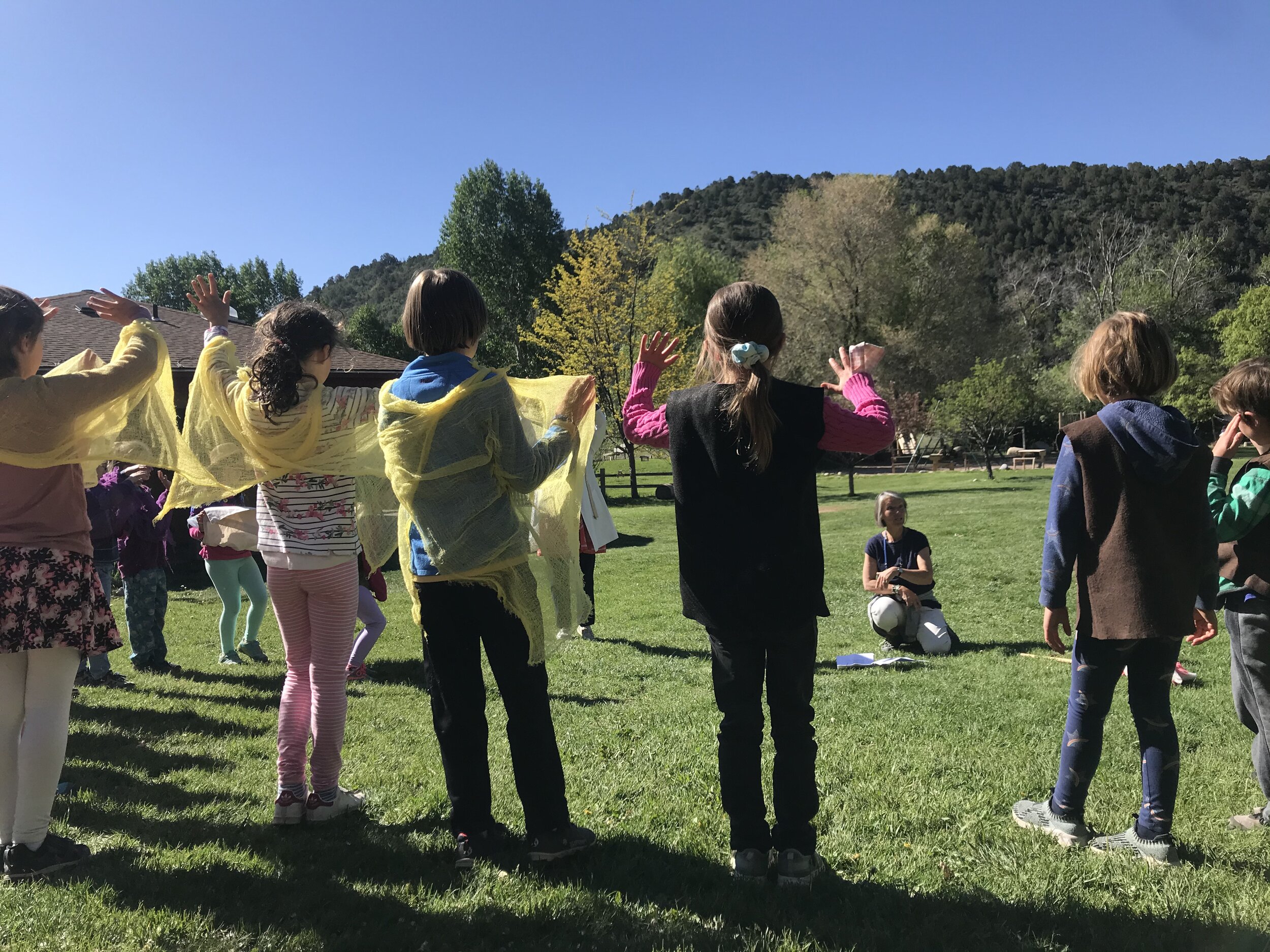Spotlight: The Role of Theater in our Curriculum
From imagination to collaboration, as the most social of the arts, theater and drama play an important role in Waldorf Education. As David Sloan notes in his book, Stages of Imagination, “young people today need drama more than ever.”
Author David Sloan continues on to note: “The vitalizing power of imagination, the collaborative nature of the theater, the striving to portray truth onstage — these aspects of dramatic work can all counteract the adverse effects of an age that seems to value the digital over the human and the stimulated over the actual. The whole process of taking words on a page and turning them into living language, into colorful characters, into moments of real illumination is akin to artistic alchemy.” (Sloan, Stages of Imagination, page 12).
A class play is a key component and often a highlight of the year, beginning in 1st grade and continuing through 8th grade. Every year, each class spends time learning, rehearsing and building integrate production of plays that align with themes of their curriculum in any given year as well as the rich and creative social process of each class. For example, a 6th grade might put on a production of Greek Mythology while the 7th grade steps into the roles of explorers like Galileo and Kepler.
The teacher chooses a play that supports the psychosocial needs of the students of that class or to act out a story they have heard that touched them deeply. Often our teachers write their class’s play or adapt a play already written so as to meet individual student’s temperamental challenges or the class's social dynamics. Different then most dramatic experiences, the end performance is not the key goal. Instead the goals are multifold and include:
Plays build interpersonal skills such as cooperation, collaboration, negotiation, acceptance.
The plays nurture interpersonal skills such as self-confidence, courage, reflecting on one’s own responsibility to the whole.
They support academic concepts such as understanding story conventions, understanding themes of the play.
Plays nurture artistic abilities such as clear articulation, embodying a character, combining speech, song and movement in one performance.
Class plays serve as one of the many spaces in our curriculum where students learn to stand proudly in their own presence, present to their community and work collectively with their class to create incredible work and tackle lofty goals. This work translates to graduates who move through the world with confidence, clarity and engagement.


